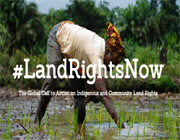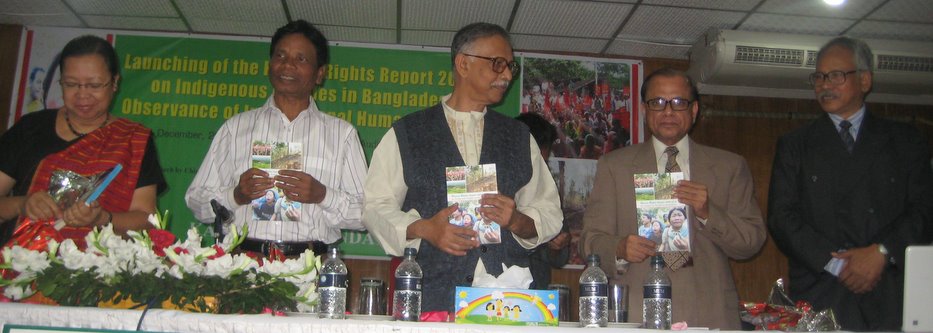
On 27 June 2011 a book launching program was held at the National Planning Academy hosted by Kapaeeng Foundation and Oxfam-GB. The law book entitled ‘Compendium on National and International Laws and Indigenous Peoples in Bangladesh’ was edited by the Chakma circle chief Barrister Devasish Roy, assistant attorney general Pratikar Chakma and lawyer Shirin Lira. The program was presided over by Mr. Rabindranath Soren, chairperson of the Kapaeeng Foundation while former chief justice of Bangladesh and also the caretaker government chief adviser Muhammad Habibur Rahman was present as the chief guest. Oxfam-GB programme manager Mr. M. B. Akhter and programme officer Mr. Saikat Biswas, Human rights and legal education committee chairman Mr. Z. I. Khan Panna, Justice S. K. Sinha of the Appellate Division of the Bangladesh Supreme Court also spoke in the book launching program.
The speakers of the program demanded specific provisions in the Constitution of Bangladesh enshrining civil, political, cultural and land rights of all indigenous peoples of the country. ‘It’s necessary for building peace,’ they said. Speakers of the event also said they were surprised to learn that Special Committee on constitution amendment has recommended indigenous peoples be dubbed as “tribal, national minorities, small ethnic groups and communities” whereas a law enacted last year had replaced “tribal” with their preferred description as “indigenous” population.
Mr. Saikat Biswas in his welcome speech said that the initiative of the book was taken in 2008. The documents of laws which were formulated from British era were not available. So, compilation of the national and international laws including the prevailing laws became a necessity. As chief guest of the launching program, former chief justice and the caretaker government chief adviser Muhammad Habibur Rahman said, it would be good for all, not to create new conflicts. He said that reconciliation alone could provide a solution. Justice Rahman called for ensuring the community based right to land and the customary rights of the indigenous peoples.
Justice S. K. Sinha of the Appellate Division expressed the hope that following the ensuing amendment specific provisions would be incorporated in the Constitution enshrining the rights of the country’s population groups having their own culture and customs that make them distinct from the country’s mainstream population. “Actually it is not a book of laws but history. It recognizes the fact that under circumstances, traditional norms have also been recognized as laws,” said Justice S. K. Sinha.
Raja Devasish Roy, a lawyer of the Supreme Court and traditional chief of the Chakma Circle in the Chittagong Hill Tracts, said that constitutional recognition of ethnic peoples, particularly their customary laws and agreements like the CHT Accord 1997, was a must for upholding rule of law and justice. He said that for the implementation of the CHT Accord it was essential for it to have constitutional recognition. Otherwise, the constitutionality of implementation of the CHT Accord and the legality of the CHT Regional Council formed in accordance with the Accord could be questioned as it happened recently. In this regard, he recalled a recent High Court decision which struck down the CHT Regional Council as unconstitutional. Therefore, it is essential for the CHT Accord to have constitutional recognition. The High Court questioned the legality of the Accord as it lacked the recognition, he further stated.
Raja Devasish said, ‘Recognition in the constitution is a must to ensure our rights.’ He said that the word ‘tribal’ and its bangla version ‘Upajati’ are derogatory and unacceptable. It would be totally unacceptable to use the term ‘tribal’ in the amended Constitution to describe the ethnic minorities, he added further suggesting that “We expect the government to identify indigenous people by a term, at least accepted by the people themselves.” He also criticized the Special Parliamentary Committee on constitution amendments for not inviting any indigenous representative to the discussions held by it.
Outcomes:
– Wide media coverage of the book launching program was made with due importance given by the electronic media of the country,
– Awareness of the mainstream people including policy makers on national and international laws relating to indigenous peoples was built.
– Civil society stalwarts such as the former chief justice, as well as the present justice of the Supreme Court, academicians, human rights activists and media personalities vowed their strong support and solidarity towards spearheading the movement for ensuring rights of the indigenous peoples in Bangladesh.



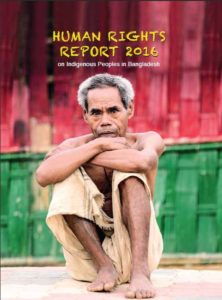
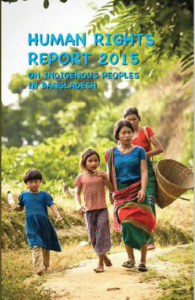
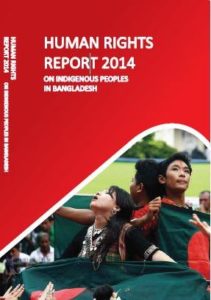
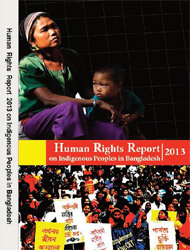
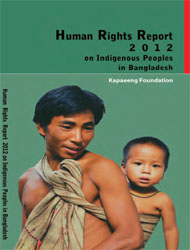
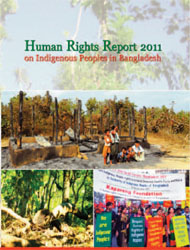
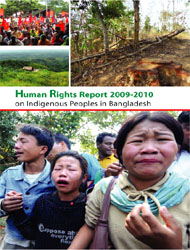

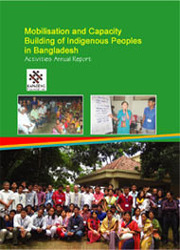



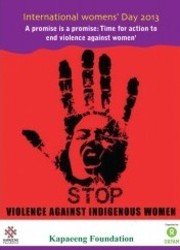
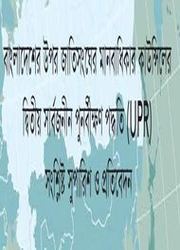
 June 28th, 2011
June 28th, 2011  KapaeengUser
KapaeengUser  Posted in
Posted in 